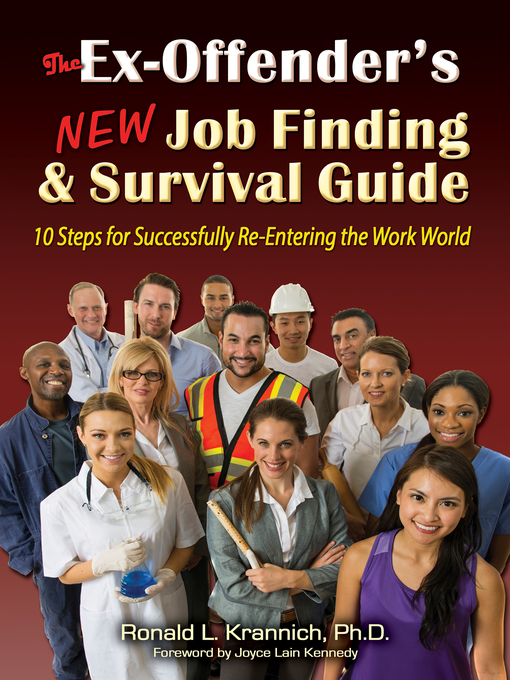Originally published as The Ex-Offender's Job Hunting Guide (2005), this ground-breaking book offers sound re-entry employment advice for those with red flags in their backgrounds and those who may appear unemployable. Indeed, finding a good job is the number one challenge facing thousands of ex-offenders entering the free world each day. In fact, the United States is the world's most "arrested society" — 707 of every 100,000 people are locked up; nearly 12 million people circulate in and out of prisons, jails, and detention centers each year; 2.2 million are incarcerated in state and local prisons; 5.5 million are on parole or probation; and 70 million have an arrest or conviction that may appear as a red flag in their background.
Successful re-entry is especially difficult for those who have lost everything, including hope and optimism. Without a decent job and support network to help meet immediate food, housing, transportation, and health care needs, and often saddled with onerous financial obligations (fines, restitution, child support payments, accumulated debts), many ex-offenders fall back on old dysfunctional habits, relationships, and temptations that lead them back to prisons, jails, and detention centers.
While many employers may not want to hire someone with a criminal record, others are willing to give ex-offenders a second chance and help them get back on their feet and move ahead with their lives. In fact, we live in a society that both admires and supports people who can pick themselves up, transform their lives, and go on to achieve their dreams.
But what should ex-offenders do in order to land a good job? Where should they go to find a job they do well and enjoy doing? What strategies work best for them? This book provides important answers to many re-entry questions facing ex-offenders. Beginning with an examination of 20 myths/realities and 22 principles for success, one of America's leading employment and re-entry experts reveals 10 steps to job and career success:
1. Examine and change your attitudes
2. Seek assistance and become proactive
3. Select appropriate job search approaches
4. Assess your skills and identify your motivational pattern
5. State a powerful objective
6. Conduct research on jobs and communities
7. Write effective resumes and letters
8. Network for information, advice, and referrals
9. Develop winning job interview skills
10. Negotiate salary and benefits like a pro
He includes two special chapters – (1) how to survive and prosper on the job as well advance your career, and (2) how to best navigate the electronic world (increasingly an important life skill) after spending so much time behind a prison firewall!
Rich in insights and filled with practical examples, exercises, self-tests, and resources, here's the book that can make a big difference for ex-offenders and those who assist them. It shows them how to contact employers who will want to hire them because of their unique talents, positive attitudes, and strong employer-centered motivations. Best of all, they learn how to find a job they both do well and enjoy doing as they go on to living a new and productive life centered around work, family, and community. Foreword by Joyce Lain Kennedy.

